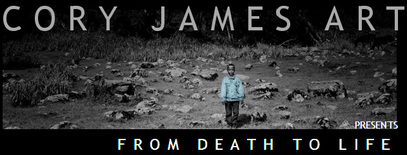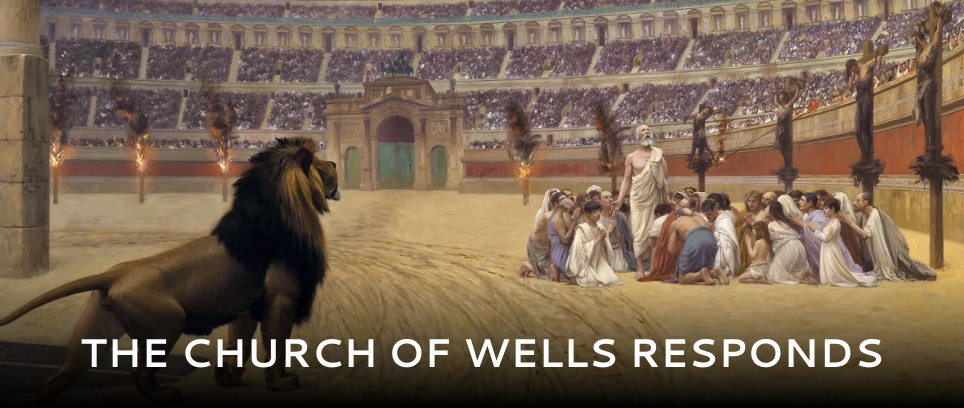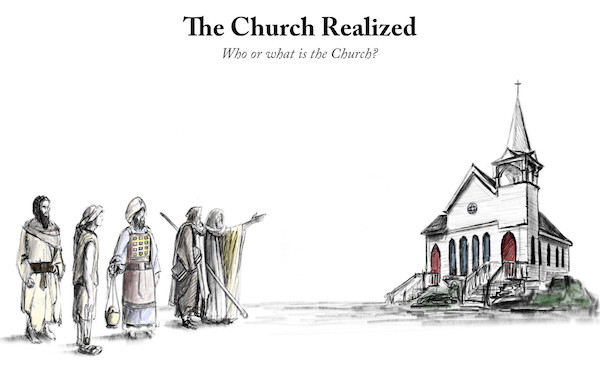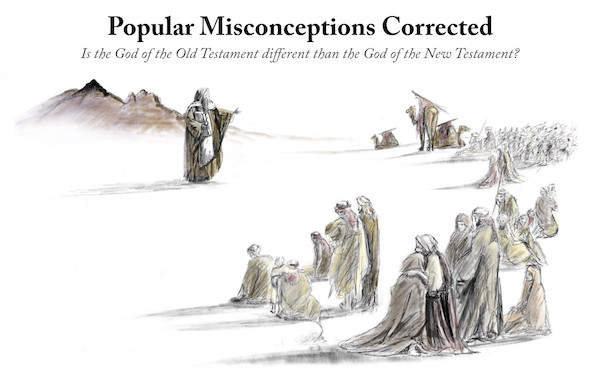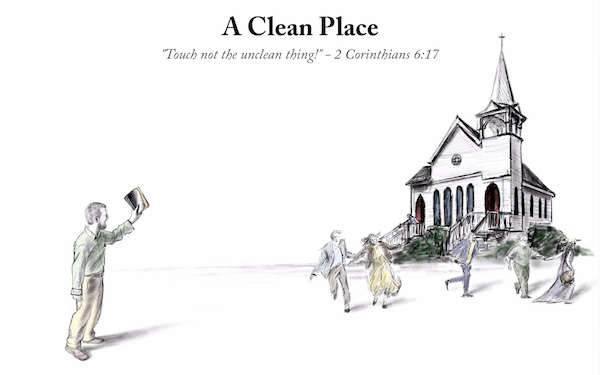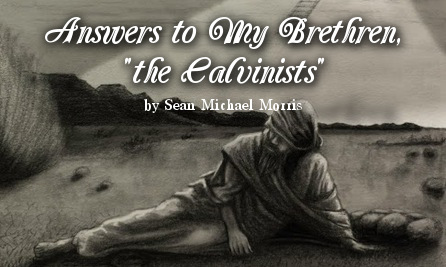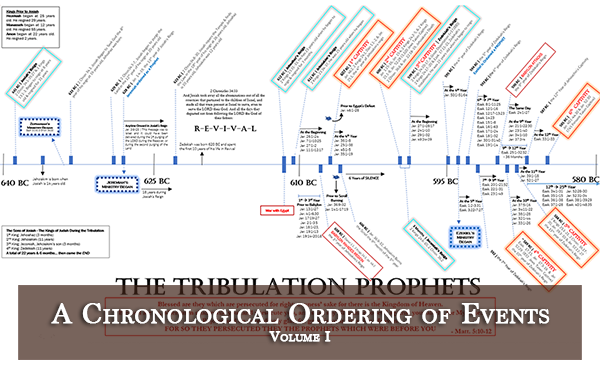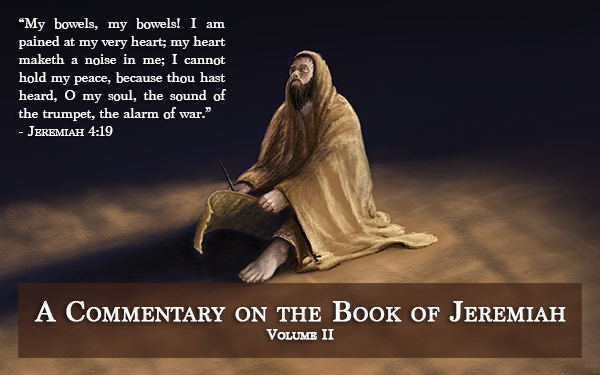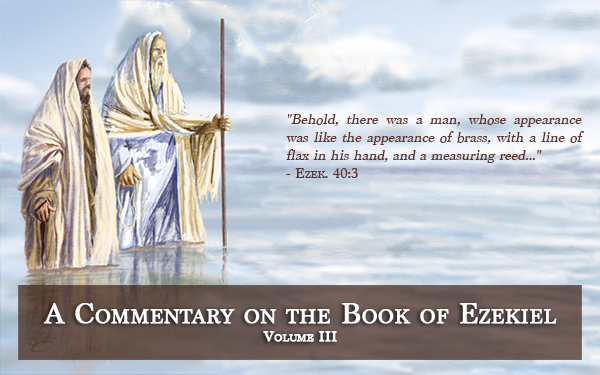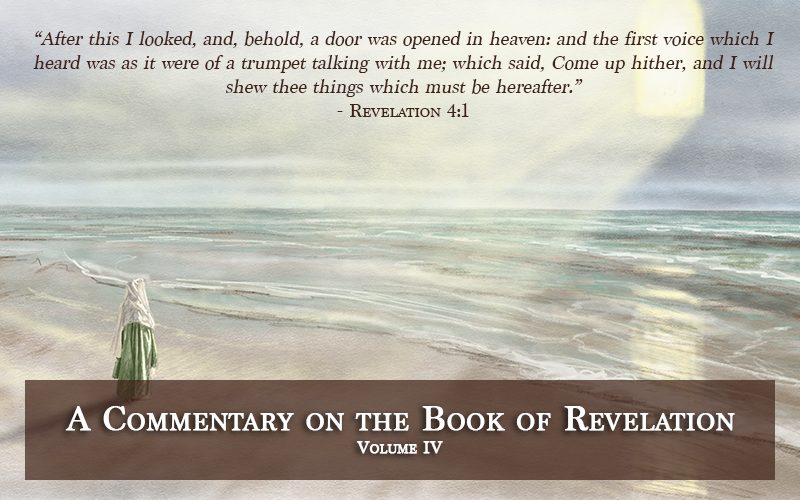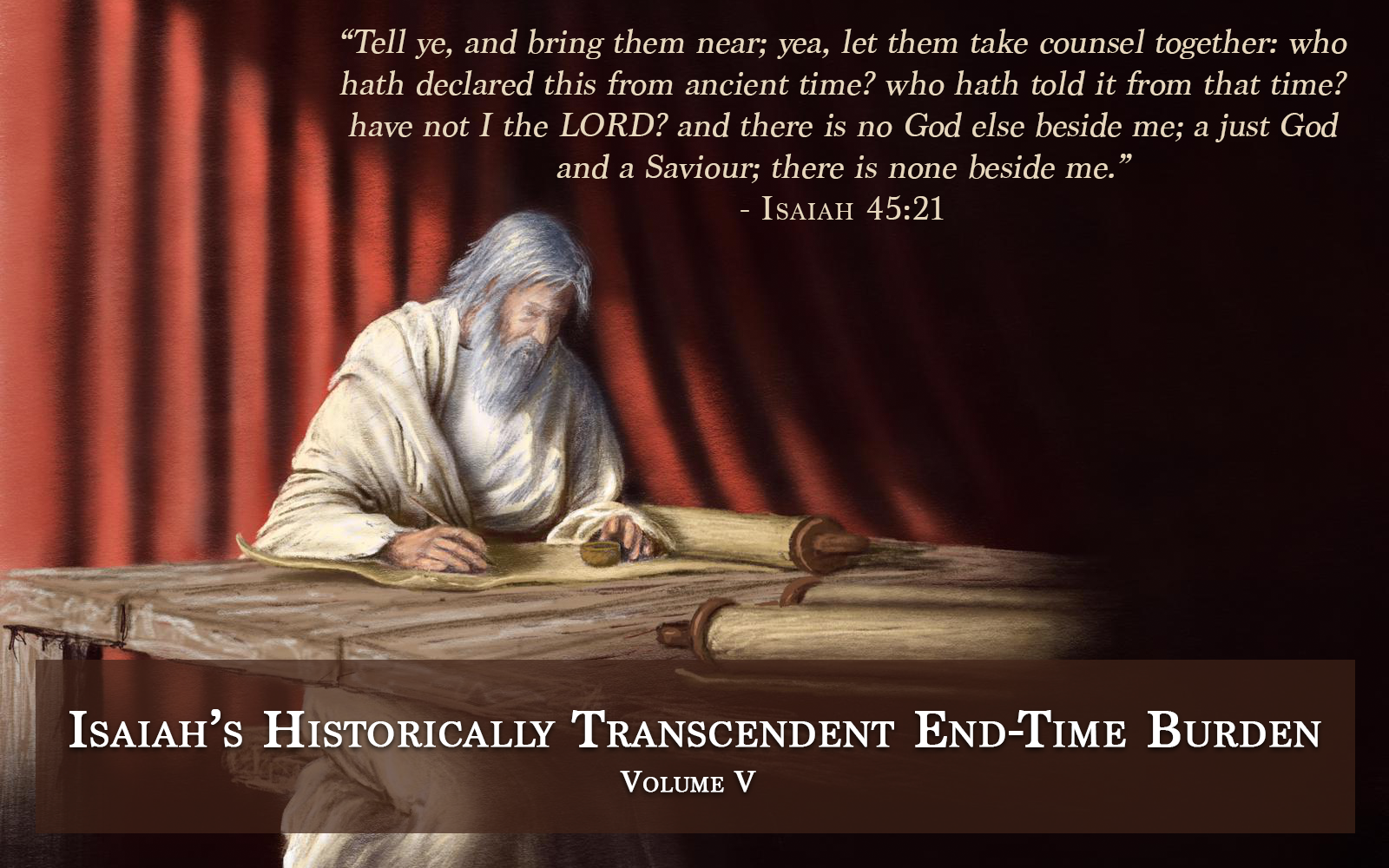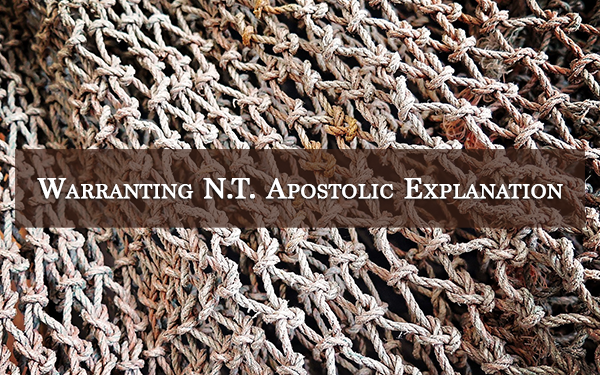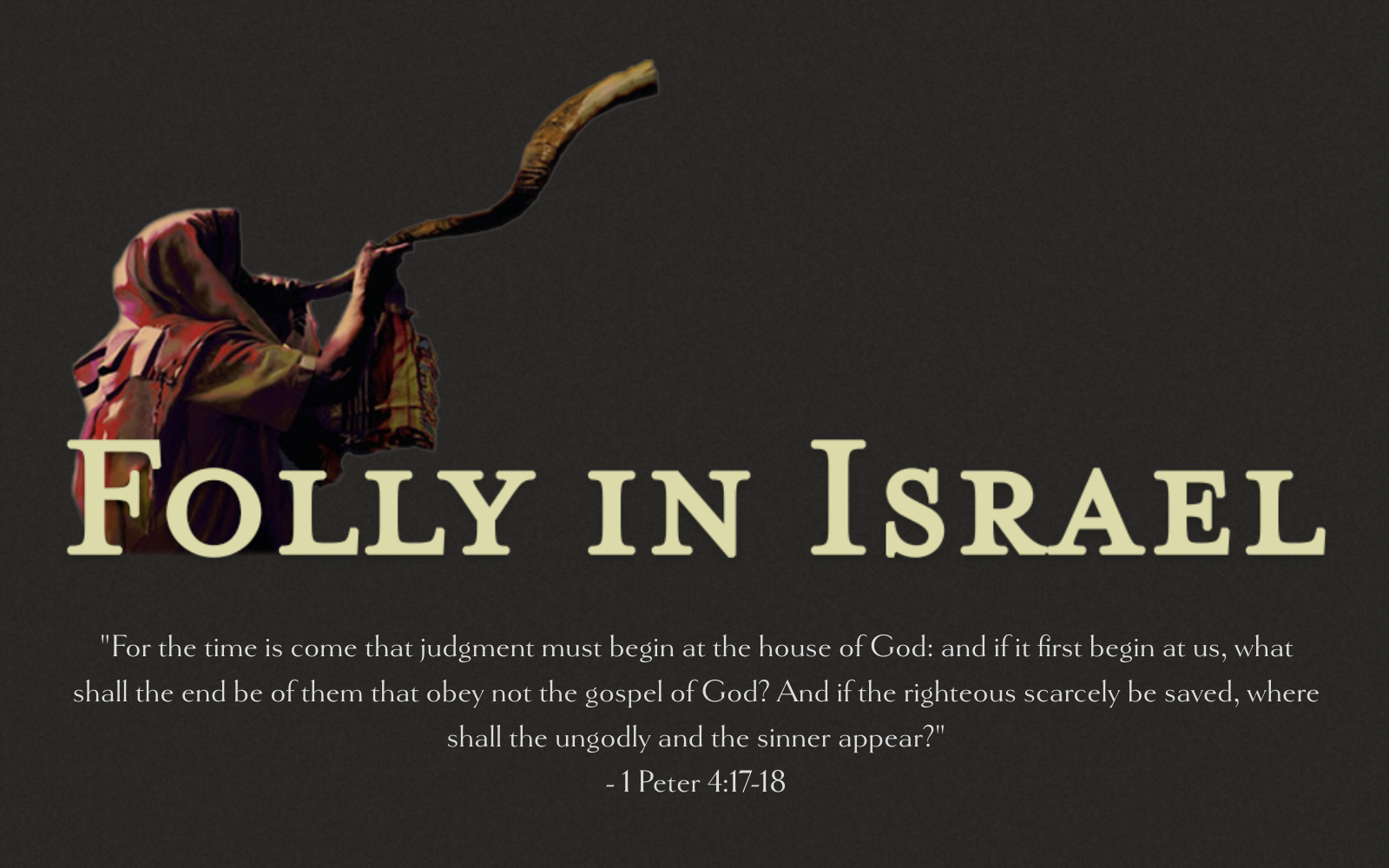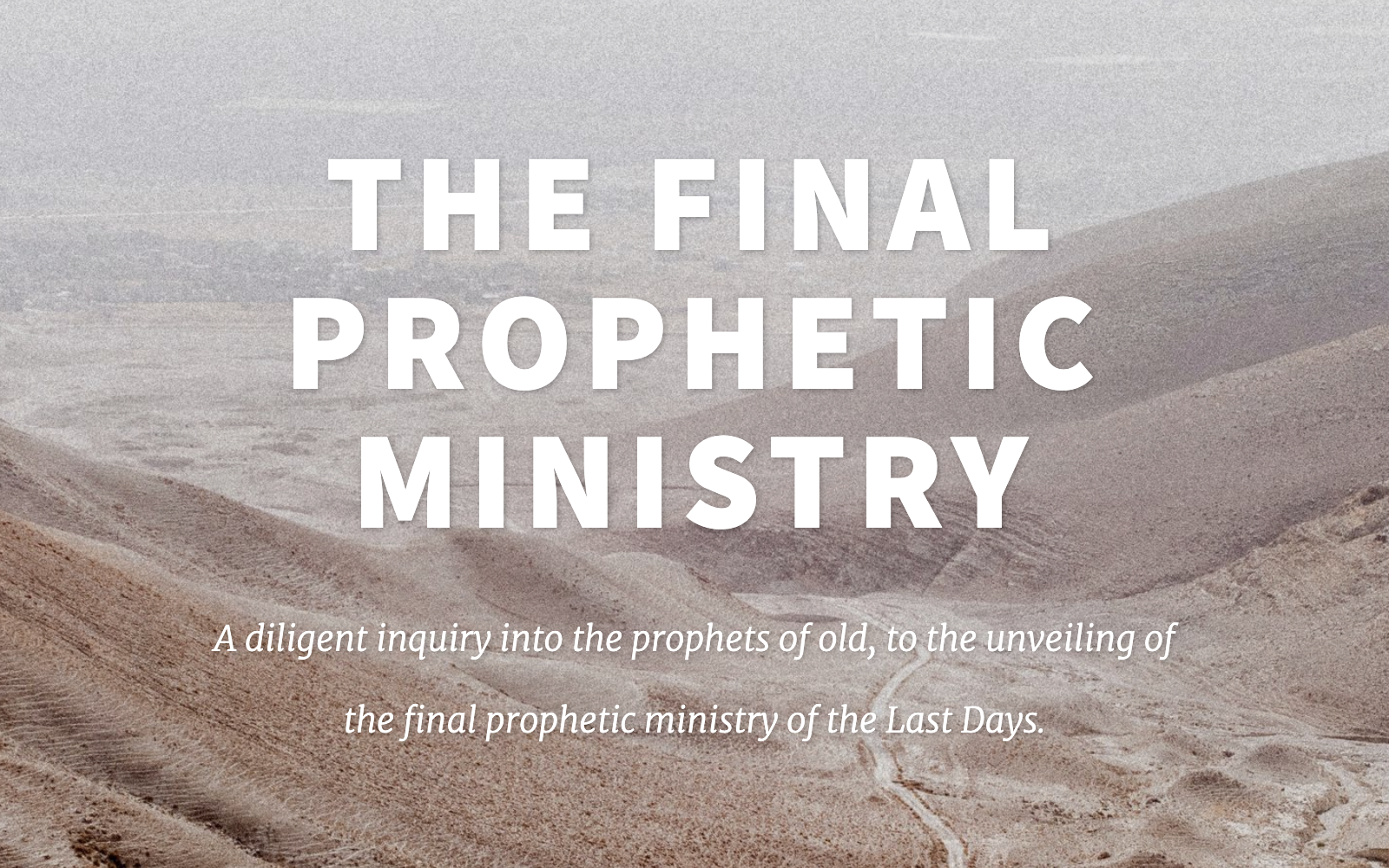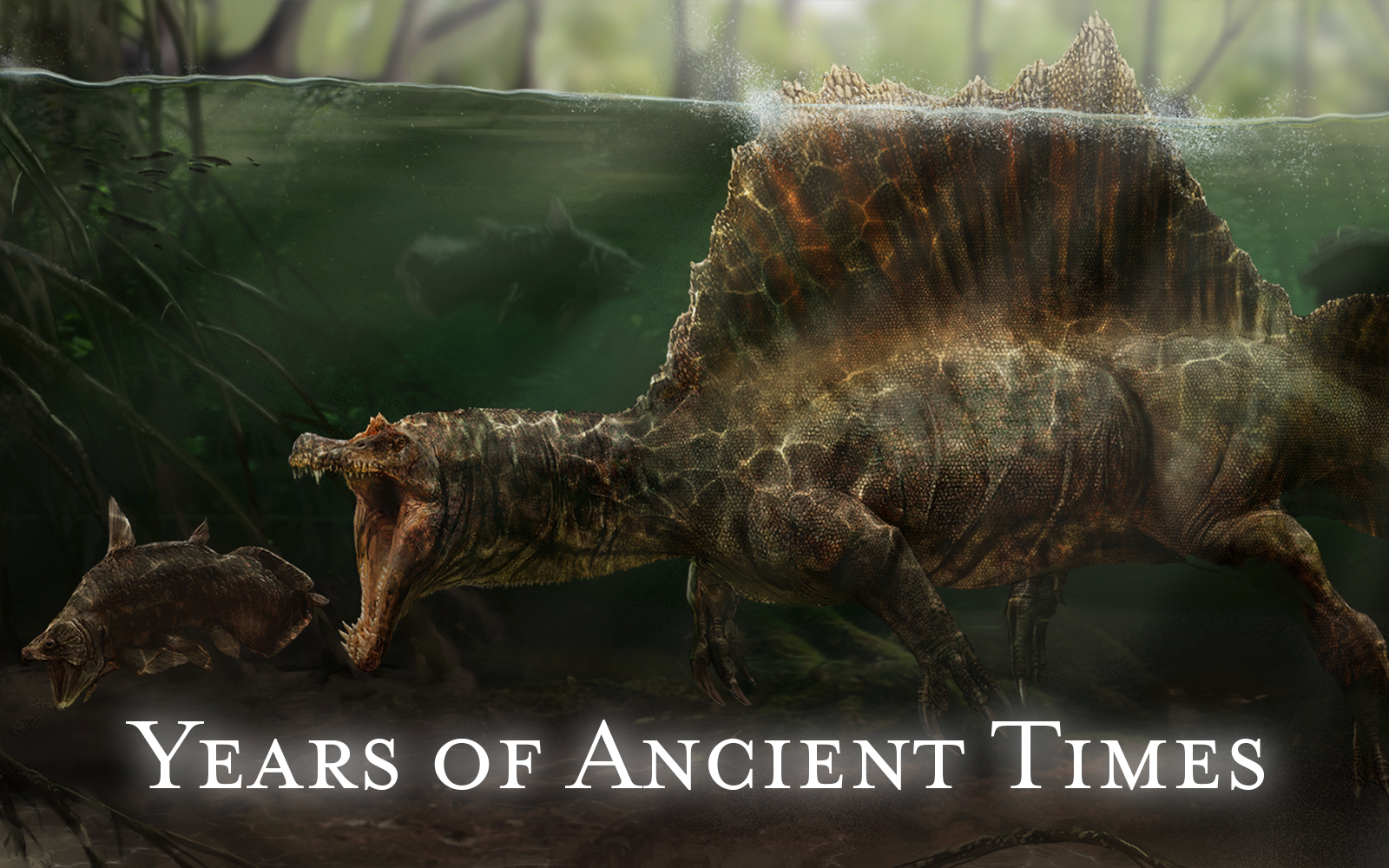Tracing OT judgment thus far, now look with me at certain typified forms of judgment which directly correlate to NT senses. It was said by God concerning Egypt, "I will pass through the land of Egypt this night, and will smite all the firstborn in the land of Egypt, both man and beast; and against all the gods of Egypt I will execute judgment: I am the LORD" (Ex. 12:12). In the NT sense it is still the burden of God to kill Egyptians. When the Egyptians were buried under the waters of the Red Sea, it was said by the Lord that this was the Israelites’ baptism, emblematic of salvation (1 Cor. 10:1-2). This is one of two OT types directly referenced for the understanding of NT baptism. These are taught so we can understand the NT meaning of baptism.
Israel passed through waters and so do we in our baptism. The waters represent our death to sin, which is, our final freedom from its bondage. We are hotly pursued by sin as Israel was hotly pursued by Egyptian hosts, and by the power of God in regeneration (which is spiritual baptism, see 1 Cor. 12:13), we are freed. Israel passed through the waters and was finally free from Egyptian bondage, enabling them to meet with their God at Sinai. This, my reader, is a great act of salvific judgment accomplished by God - when He killed all the pursuing Egyptian armies! So it is with us, NT judgment is the execution of flesh, its death (Rom. 6:3-4), our death (Gal. 2:20), and walking in the power of the grace of God is a continual keeping of present progressive judgment against Egypt's sin-bondage. It is said in these terms, "If ye live after the flesh, ye shall die: but if ye through the Spirit do mortify the deeds of the body, ye shall live" (Rom. 8:13). You are not Christ's spiritual property without a personal crucifixion (Gal. 5:24), and all Christians are called to the continual judgment of their flesh, which is the world (1 John 2:15-17), so it is commanded of those who are already Christians to presently and progressively "mortify therefore your members which are upon the earth" (Col. 3:5). God is in the holy business of killing sin and sinners. Christians agree with God, and kill themselves so that Christ can live. Salvation is when He kills you (Gal. 2:20), present progressive salvation is when He continues to kill you (Col. 3:5, Rom. 8:13), and if you don't kill your sin, it will kill you. God is a God of judgment and in this sense it is meant, "if we would judge ourselves, we should not be judged" (1 Cor. 11:31). A good, righteous, and truthful man would not leave those whom God has judged to death to go on safe escaped from justice. Like as the OT, so a Christian must never leave himself (that is, his flesh) alive. This is the sense of NT judgment which is a personal practice. We are told that sin is an Amalekite army of evil, and we must “fight against them until they be consumed” (1 Sam. 15:18). If we refuse, then God says, “because thou hast rejected the word of the LORD, he hath also rejected thee” (1Sam. 15:23). God has a vengeance against sin; it is His sworn enemy - He lives that it might die like as the holy vengeance he had against the Amalekites that were oath-bound to total annihilation.
The other type of baptism presented in the NT, typified in the OT, is, when God killed the whole world in the days of Noah (leaving only 8 saved by the ark). Again, like as the Red Sea baptism, the wicked and guilty are left under the waters of God's judgment. These waters were salvation to Noah and death to the condemned. After the flood was the new world, like as Christians experience newness of life. This is taught in 1 Peter 3:18-22. God in this sense as well is a God of judgment.
Now, there are other forms of judgment in the NT which are equally as consequential, necessary, and, in part, saving. One form is corporate judgment, whether in the community of the righteous Christians (1 Cor. 5), or amongst the public of heathen outside of the Church. This form of judgment is still vital and saving, just in a different sense. This is typified in the time when it was said, "THEN STOOD UP Phinehas, and executed judgment: and so the plague was stayed" (Ps. 106:30). This judgment is a judgment of the body of Christ, a putting away of members who are diseased in unrepentant sin, and of this God spoke strictly in OT types that these judgments pacify plagues of wrath and corporate annihilation.









